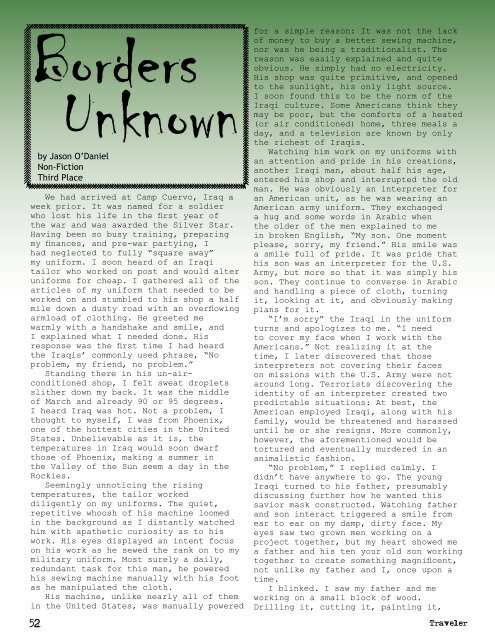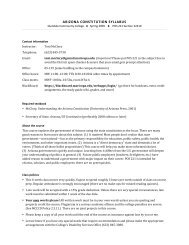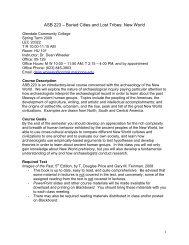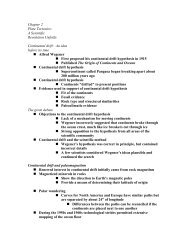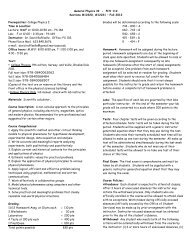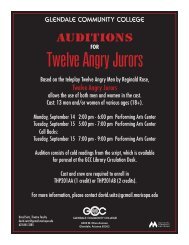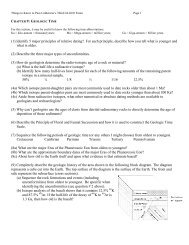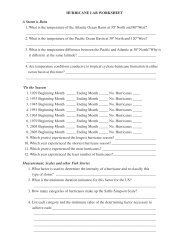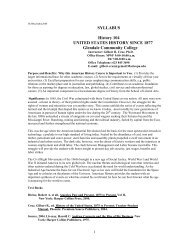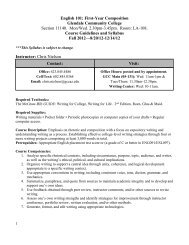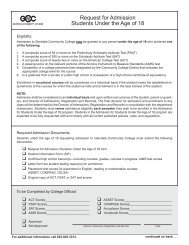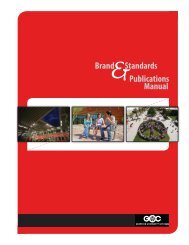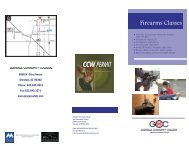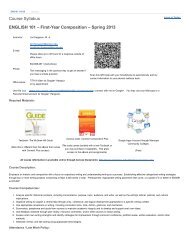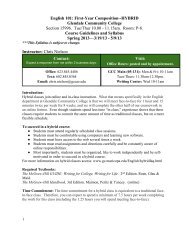You also want an ePaper? Increase the reach of your titles
YUMPU automatically turns print PDFs into web optimized ePapers that Google loves.
Borders<br />
Unknown<br />
by Jason O’Daniel<br />
Non-Fiction<br />
Third Place<br />
We had arrived at Camp Cuervo, Iraq a<br />
week prior. It was named for a soldier<br />
who lost his life in the first year of<br />
the war and was awarded the Silver Star.<br />
Having been so busy training, preparing<br />
my finances, and pre-war partying, I<br />
had neglected to fully “square away”<br />
my uniform. I soon heard of an Iraqi<br />
tailor who worked on post and would alter<br />
uniforms for cheap. I gathered all of the<br />
articles of my uniform that needed to be<br />
worked on and stumbled to his shop a half<br />
mile down a dusty road with an overflowing<br />
armload of clothing. He greeted me<br />
warmly with a handshake and smile, and<br />
I explained what I needed done. His<br />
response was the first time I had heard<br />
the Iraqis’ commonly used phrase, “No<br />
problem, my friend, no problem.”<br />
Standing there in his un-airconditioned<br />
shop, I felt sweat droplets<br />
slither down my back. It was the middle<br />
of March and already 90 or 95 degrees.<br />
I heard Iraq was hot. Not a problem, I<br />
thought to myself, I was from Phoenix,<br />
one of the hottest cities in the United<br />
States. Unbelievable as it is, the<br />
temperatures in Iraq would soon dwarf<br />
those of Phoenix, making a summer in<br />
the Valley of the Sun seem a day in the<br />
Rockies.<br />
Seemingly unnoticing the rising<br />
temperatures, the tailor worked<br />
diligently on my uniforms. The quiet,<br />
repetitive whoosh of his machine loomed<br />
in the background as I distantly watched<br />
him with apathetic curiosity as to his<br />
work. His eyes displayed an intent focus<br />
on his work as he sewed the rank on to my<br />
military uniform. Most surely a daily,<br />
redundant task for this man, he powered<br />
his sewing machine manually with his foot<br />
as he manipulated the cloth.<br />
His machine, unlike nearly all of them<br />
in the United States, was manually powered<br />
52<br />
for a simple reason: It was not the lack<br />
of money to buy a better sewing machine,<br />
nor was he being a traditionalist. The<br />
reason was easily explained and quite<br />
obvious. He simply had no electricity.<br />
His shop was quite primitive, and opened<br />
to the sunlight, his only light source.<br />
I soon found this to be the norm of the<br />
Iraqi culture. Some Americans think they<br />
may be poor, but the comforts of a heated<br />
(or air conditioned) home, three meals a<br />
day, and a television are known by only<br />
the richest of Iraqis.<br />
Watching him work on my uniforms with<br />
an attention and pride in his creations,<br />
another Iraqi man, about half his age,<br />
entered his shop and interrupted the old<br />
man. He was obviously an interpreter for<br />
an American unit, as he was wearing an<br />
American army uniform. They exchanged<br />
a hug and some words in Arabic when<br />
the older of the men explained to me<br />
in broken English, “My son. One moment<br />
please, sorry, my friend.” His smile was<br />
a smile full of pride. It was pride that<br />
his son was an interpreter for the U.S.<br />
Army, but more so that it was simply his<br />
son. They continue to converse in Arabic<br />
and handling a piece of cloth, turning<br />
it, looking at it, and obviously making<br />
plans for it.<br />
“I’m sorry” the Iraqi in the uniform<br />
turns and apologizes to me. “I need<br />
to cover my face when I work with the<br />
Americans.” Not realizing it at the<br />
time, I later discovered that those<br />
interpreters not covering their faces<br />
on missions with the U.S. Army were not<br />
around long. Terrorists discovering the<br />
identity of an interpreter created two<br />
predictable situations: At best, the<br />
American employed Iraqi, along with his<br />
family, would be threatened and harassed<br />
until he or she resigns. More commonly,<br />
however, the aforementioned would be<br />
tortured and eventually murdered in an<br />
animalistic fashion.<br />
“No problem,” I replied calmly. I<br />
didn’t have anywhere to go. The young<br />
Iraqi turned to his father, presumably<br />
discussing further how he wanted this<br />
savior mask constructed. Watching father<br />
and son interact triggered a smile from<br />
ear to ear on my damp, dirty face. My<br />
eyes saw two grown men working on a<br />
project together, but my heart showed me<br />
a father and his ten your old son working<br />
together to create something magnificent,<br />
not unlike my father and I, once upon a<br />
time.<br />
I blinked. I saw my father and me<br />
working on a small block of wood.<br />
Drilling it, cutting it, painting it,<br />
Traveler


